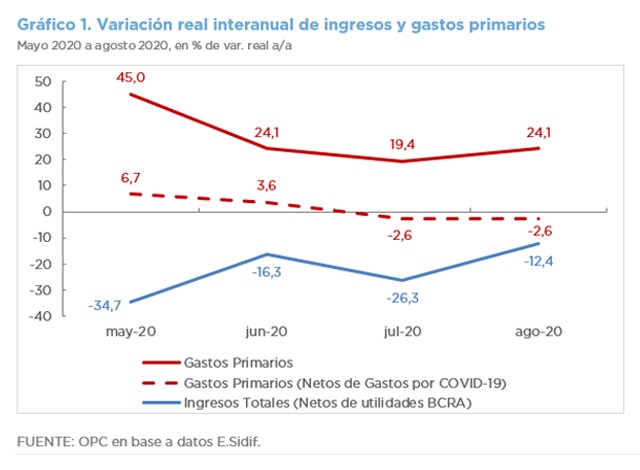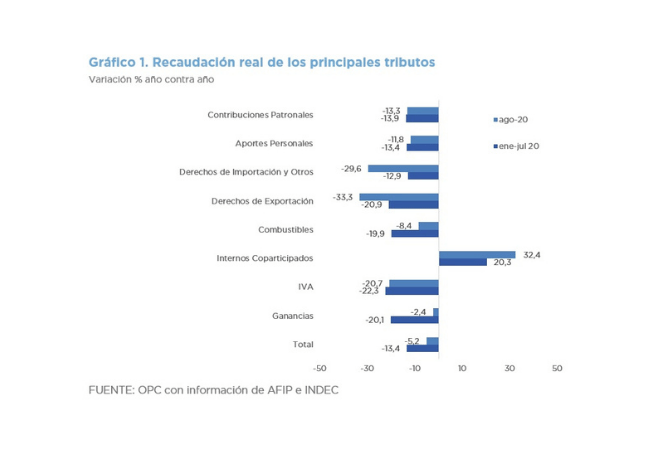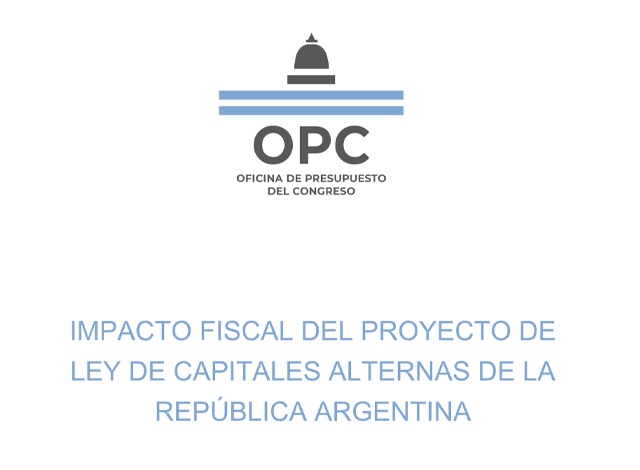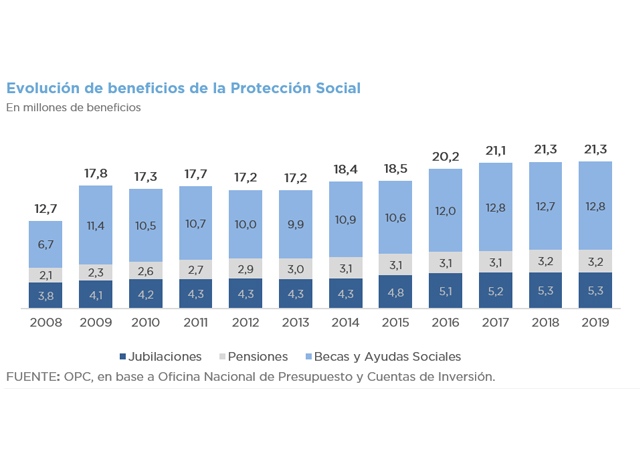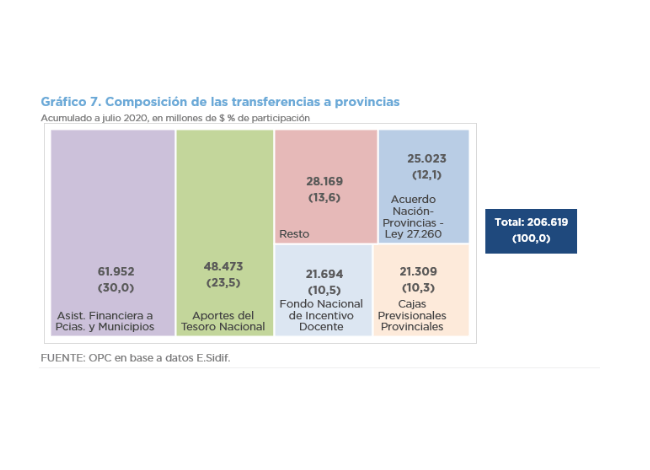
PUBLIC DEBT OPERATIONS – AUGUST 2020
The results of the restructuring of foreign legislation bonds were announced on October 31, by
means of which 99.01% of the outstanding USD66.18 billion of all bonds involved were
swapped. The level of acceptance of the proposal among creditors was sufficient for the
implementation of the Collective Action clauses in most of the eligible bond series, except for
the Par bonds in euros and dollars issued in 2010. New bonds in dollars were issued for
USD63.2 billion and bonds in euros for EUR4.18 billion.
Subsequently, on September 4, the results of the early acceptance for the swap of government
securities in dollars issued under Argentine legislation were announced. In this stage, 98.9% of
the outstanding USD41.71 billion of eligible securities were swapped. New bonds in dollars for
USD41.72 billion and new inflation-adjustable bonds (BONCER) for AR$57.68 billion were
issued.
As a result of both swaps (securities under foreign and Argentine legislation), the debt maturity
burden (including debt within the public sector) was reduced by USD55.5 billion for the term
2020-2024.
In August, security placements and loan disbursements were recorded for the equivalent of
USD4.68 billion, of which AR$237.9 billion (USD3.25 billion) were auctions of marketable
securities in pesos. On the other hand, the equivalent of USD2.65 billion of principal was
cancelled, mainly due to maturities of Treasury bills in pesos. Likewise, interest payments for
the equivalent of USD656 million were cancelled, of which 54% were in foreign currency.
Debt service maturities are estimated for the equivalent of USD3.44 billion in September,
amounting to USD20 billion until the end of the year (approximately USD10.43 million if holdings within the public sector are excluded).

